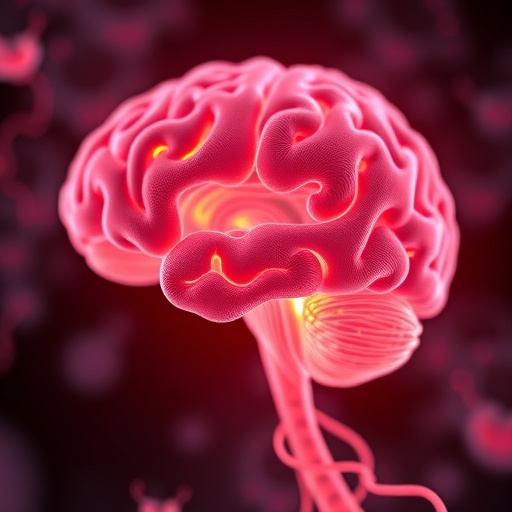In a groundbreaking new study led by neuroscientists at the Massachusetts Institute of Technology, rare genetic variants of the ABCA7 gene have been implicated in the pathogenesis of Alzheimer’s disease, advancing our understanding of how lipid metabolism disruptions contribute to neurodegeneration. ABCA7, a gene encoding a crucial lipid transporter protein, has been previously associated with increased Alzheimer’s risk, but the precise mechanisms behind this connection remained largely elusive until now. This latest research highlights the role of ABCA7 in maintaining neuronal membrane health and mitochondrial function, uncovering a pathway that could be targeted to reverse harmful cellular changes in affected individuals.
The study focuses on the dysfunctional versions of ABCA7 which are present in a minuscule fraction of the population yet have an outsized impact on Alzheimer’s susceptibility. By disrupting lipid homeostasis, specifically within neuronal membranes, these ABCA7 mutations trigger hyperexcitability in brain cells and induce a state of cellular stress. This stress inflicts damage on DNA and other vital intracellular structures, compounding neuronal vulnerability. Strikingly, the research illustrates that many of these deleterious effects can be mitigated when neurons are treated with choline—a key precursor molecule necessary for phosphatidylcholine synthesis, a major component of cell membranes.
According to Djuna von Maydell, the study’s lead author and an MIT graduate student, treatment with choline was able to reverse a substantial number of transcriptional abnormalities in neurons deficient in ABCA7. Additionally, choline therapy suppressed the heightened neuronal excitability and reduced the levels of amyloid beta peptides—proteins that accumulate into plaques and are a hallmark of Alzheimer’s pathology. These findings suggest that enhancing lipid synthesis pathways with choline metabolites could restore neuronal function and slow or prevent disease progression in patients harboring these genetic variants.
Senior author Li-Huei Tsai, director of MIT’s Picower Institute for Learning and Memory, explains that previous work from her lab demonstrated the central role of lipid metabolism disruption in Alzheimer’s disease. In particular, the more common APOE4 gene variant, carried by roughly half of all Alzheimer’s patients, similarly impairs lipid processing and cellular stress responses in the brain. This parallel reinforces the emerging concept that diverse genetic risk factors converge on lipid dyshomeostasis as a final common pathway driving Alzheimer’s onset.
To dissect the impact of ABCA7 variants at a molecular level, the researchers leveraged tissue from the Religious Orders Study/Memory and Aging Project (ROSMAP), a rich longitudinal dataset comprising over a thousand brain samples with accompanying genetic data. Among these, twelve samples carried rare ABCA7 mutations. Single-cell RNA sequencing of neurons isolated from these individuals revealed extensive gene expression changes, particularly in clusters related to lipid metabolism, DNA repair, and oxidative phosphorylation—the mitochondrial process essential for ATP generation.
Mechanistic modeling was performed by introducing ABCA7 variants into human neurons derived from induced pluripotent stem cells (iPSCs). These in vitro models recapitulated many of the gene expression aberrations observed in patient tissue, emphasizing disrupted oxidative phosphorylation pathways. Further functional analyses revealed impaired mitochondrial “safety valves” that ordinarily dissipate excess electrical charge, leading to oxidative stress caused by accumulation of damaging free radicals—a condition strongly linked to neurodegeneration.
One pivotal insight of the study was the discovery that ABCA7 mutations alter the metabolism of phosphatidylcholine, a phospholipid critical for maintaining membrane fluidity and integrity. Dysfunction in phosphatidylcholine metabolism likely induces membrane stiffness and compromises mitochondrial membrane potential, thus impairing energy metabolism and cellular resilience. This lipid imbalance offers a concrete biochemical target poised for therapeutic intervention.
Testing this hypothesis, the team treated ABCA7-mutant neurons with CDP-choline, a bioavailable precursor that feeds directly into phosphatidylcholine biosynthesis. The intervention restored normal production of both saturated and unsaturated phosphatidylcholine variants, recovered mitochondrial membrane potentials, and reduced oxidative stress markers. These results highlight a promising avenue for correcting the metabolic consequences of ABCA7 dysfunction at a cellular level.
Expanding their investigation, researchers generated 3D neuronal organoids from iPSCs harboring ABCA7 mutations. These organoids exhibited elevated amyloid beta accumulation, mirroring early Alzheimer’s pathology. Remarkably, CDP-choline treatment normalized amyloid levels and attenuated neuronal hyperexcitability, suggesting that lipid restoration strategies could mitigate key pathological hallmarks of Alzheimer’s disease in complex cellular systems.
This study builds on prior findings from Tsai’s laboratory, where choline supplementation was effective in reversing APOE4-linked neuronal deficits in mouse models. Currently, clinical trials are underway in collaboration with the University of Texas and MD Anderson Cancer Center to evaluate the impact of choline in humans carrying APOE4 variants. These parallel approaches underscore the potential of choline-related therapeutics in broad-spectrum Alzheimer’s risk reduction.
Choline is naturally abundant in common dietary sources such as eggs, meat, fish, nuts, and legumes, presenting an accessible means to bolster brain lipid metabolism. Tsai suggests that enhancing choline intake, whether through diet or supplementation, could become a widely applicable preventive strategy against Alzheimer’s disease, especially for individuals with genetic susceptibilities related to lipid transporter genes like ABCA7 and APOE4.
Intriguingly, the team also identified a more prevalent ABCA7 variant found in approximately 18% of the general population that was previously considered benign. Their experiments revealed that even this common variant disrupts lipid metabolism pathways akin to the rare mutations studied, implying that ABCA7-related lipid dysregulation may impact a significantly larger segment of people than formerly recognized. Further investigations are needed, but these findings broaden the potential public health relevance of targeting ABCA7 dysfunction.
Overall, this comprehensive study illuminates how perturbations in lipid homeostasis, precipitated by ABCA7 variants, contribute to the cellular dysfunction underlying Alzheimer’s disease. By demonstrating that these effects can be reversed with choline supplementation, the research offers hope for novel preventative and therapeutic approaches. Lipid metabolism thus emerges as a critical nexus in Alzheimer’s pathology, with promising implications for improving brain health through accessible interventions.
Subject of Research:
Article Title: ABCA7 variants impact phosphatidylcholine and mitochondria in neurons
News Publication Date: 10-Sep-2025
Web References: http://dx.doi.org/10.1038/s41586-025-09520-y
Keywords: Alzheimer disease, lipid metabolism, neurological disorders, phosphatidylcholine, mitochondria, ABCA7 gene, oxidative phosphorylation, neurodegeneration, choline supplementation, APOE4, neuronal hyperexcitability, amyloid beta




